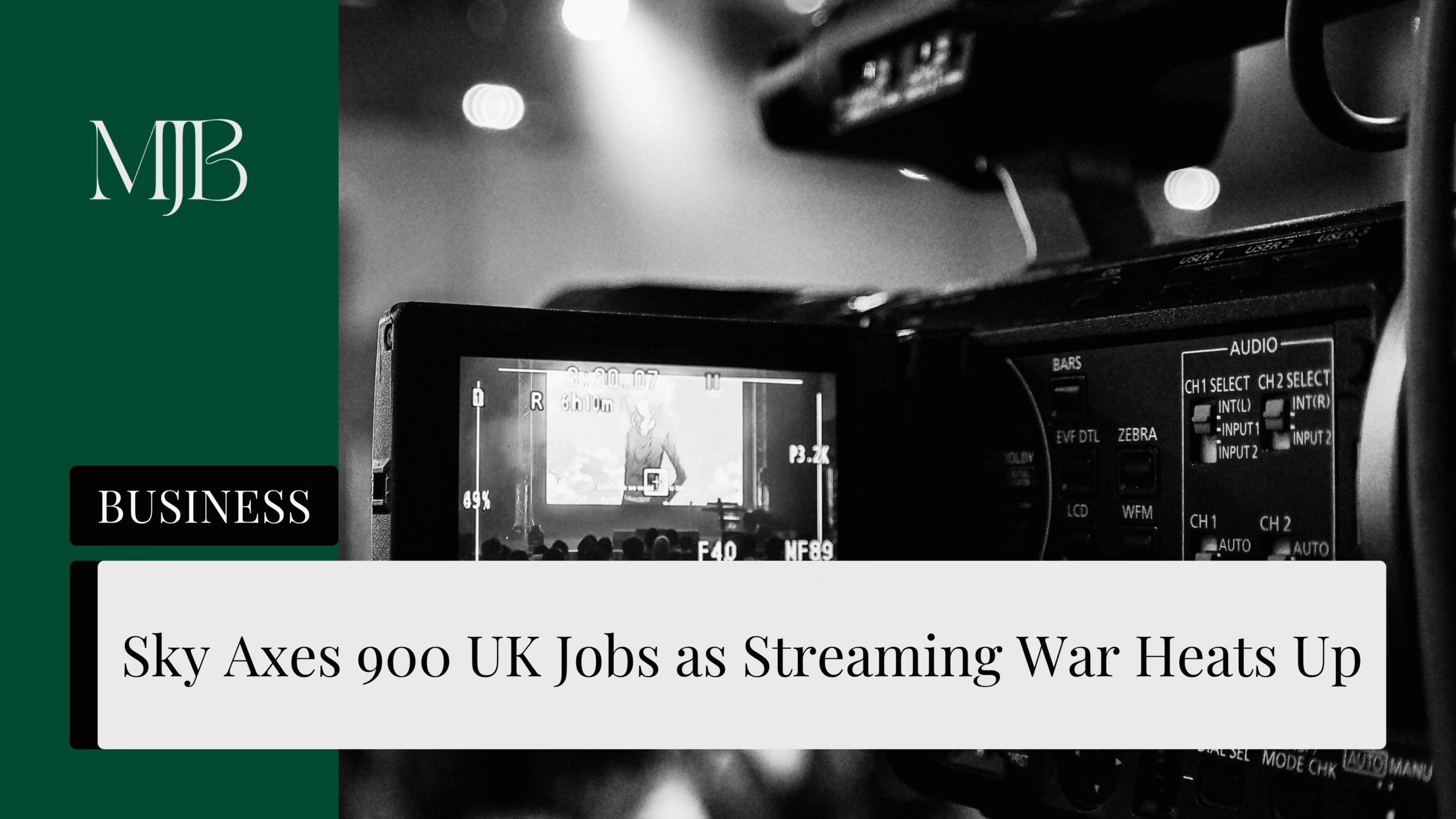The Streaming Pivot Hits Home
Remember when Sky meant satellite dishes? Those days are a distant memory. Comcast’s UK broadcaster just announced it’s cutting around 900 jobs as it transforms from a traditional TV company into a streaming-first competitor against Netflix and Disney+.
The cuts hit hardest in operations (600 roles) and tech teams, with remaining staff potentially redeployed after consultations this week. It’s the latest chapter in Sky’s radical makeover—they’ve already shed 3,000 roles since 2023, mostly satellite installers who’ve become as relevant as VHS repair technicians.
From Satellites to Streaming: Sky’s New Game Plan
The Product Shift is Complete
Sky’s betting big on its newest toys. Their Sky Glass smart TVs and Sky Stream boxes now capture over 90% of new subscriptions—a massive win for their broadband-based strategy.
But here’s the thing: the product development phase is done. Now it’s all about perfecting what they’ve built rather than launching shiny new gadgets every quarter.
Content Wars Are Getting Serious
Sky’s doubling down on original content at their Elstree Studios, and they’ll need it. Come 2026, they’re losing exclusive rights to HBO blockbusters like Game of Thrones and The White Lotus.
The good news? They’ve secured a deal to offer HBO content through Warner Bros Discovery’s streaming service. Not ideal, but better than losing Westeros entirely.

The Brutal Reality of Streaming Competition
This isn’t just about job cuts—it’s about survival. Sky faces an uncomfortable truth: competing with deep-pocketed US streaming giants requires ruthless efficiency.
The broadcaster scrapped its flagship Business Live show (goodbye, Ian King era), signaling that even established programs aren’t safe if they don’t fit the new digital-first vision.
Sky’s message is clear: we’re streamlining everything to focus on subscription growth and content production. Traditional broadcasting? That’s yesterday’s game.

What This Means for Sky’s Future
Sky’s transformation reflects broader industry shifts. Traditional broadcasters worldwide are racing to become streaming platforms before Netflix and Amazon Prime eat their lunch.
For Sky’s 23,000 UK employees, it’s a reminder that media jobs increasingly mean digital skills or bust. The company’s investing in content creation while cutting operational fat—a classic streaming playbook.
The Bottom Line: Sky’s job cuts aren’t just cost-cutting—they’re strategic repositioning. The question isn’t whether Sky can compete with streaming giants, but whether they can transform fast enough to stay relevant.
Ready to see how other broadcasters are handling the streaming shift? Keep watching this space.
FAQ
Q1: Why is Sky cutting 900 jobs now?
A: Sky’s completed its product development phase and is shifting focus to improving existing services rather than launching new ones. The cuts help them compete more efficiently with US streaming giants.
Q2: Will Sky subscribers notice any changes?
A: Most changes happen behind the scenes in operations and tech teams. Sky’s focusing on enhancing current services rather than disrupting the customer experience.
Q3: What happens to HBO shows on Sky?
A: Sky loses exclusive HBO rights at the end of 2025 but secured a deal to offer HBO content through Warner Bros Discovery’s streaming service. You’ll still get your Game of Thrones fix.
Q4: Is this part of a wider industry trend?
A: Absolutely. Traditional broadcasters worldwide are cutting costs and pivoting to streaming to compete with Netflix, Amazon Prime, and Disney+.
Q5: How many people does Sky employ in the UK?
A: Sky employs approximately 23,000 people in the UK and has cut around 3,000 roles since 2023, mainly traditional positions like satellite installers.
DISCLAIMER
Effective Date: 15th July 2025
The information provided on this website is for informational and educational purposes only and reflects the personal opinions of the author(s). It is not intended as financial, investment, tax, or legal advice.
We are not certified financial advisers. None of the content on this website constitutes a recommendation to buy, sell, or hold any financial product, asset, or service. You should not rely on any information provided here to make financial decisions.
We strongly recommend that you:
- Conduct your own research and due diligence
- Consult with a qualified financial adviser or professional before making any investment or financial decisions
While we strive to ensure that all information is accurate and up to date, we make no guarantees about the completeness, reliability, or suitability of any content on this site.
By using this website, you acknowledge and agree that we are not responsible for any financial loss, damage, or decisions made based on the content presented.






